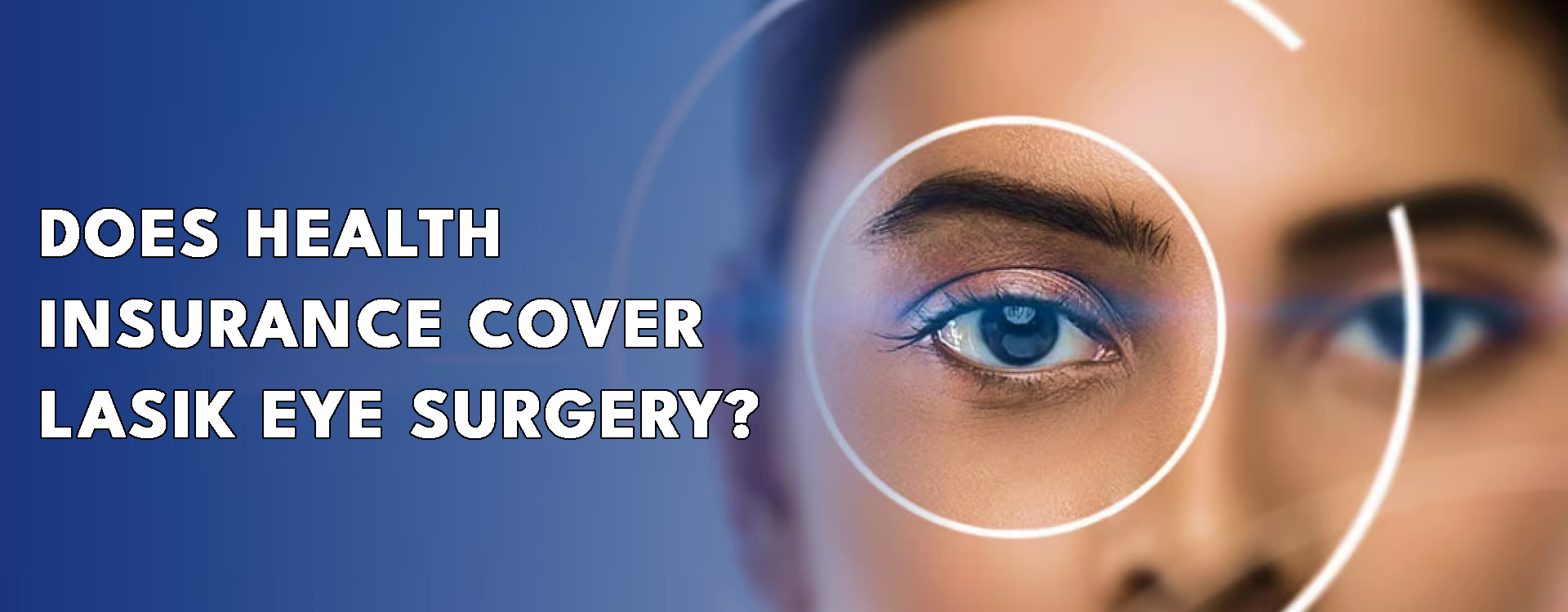LASIK Eye Surgery: Can Health Insurance Help Cover the Cost?
LASIK eye surgery has become a popular solution for people looking to improve their vision and reduce their dependency on glasses or contact lenses. However, when considering LASIK, one of the most common questions people ask is: “Does health insurance cover LASIK eye surgery?”
In this article, we’ll explore whether LASIK is covered by health insurance, the reasons behind coverage decisions, and alternative options to help manage the cost.

What is LASIK Eye Surgery?
LASIK (Laser-Assisted In Situ Keratomileusis) is a type of refractive eye surgery that uses a laser to reshape the cornea, correcting vision problems like:
– Nearsightedness (Myopia)
– Farsightedness (Hyperopia)
– Astigmatism
The goal of LASIK is to allow patients to see clearly without needing glasses or contact lenses. The procedure is quick (usually about 15 minutes per eye) and has a high success rate, with most patients achieving 20/20 vision or better.
Does Health Insurance Cover LASIK?
In most cases, health insurance does not cover LASIK eye surgerybecause it is considered an elective or cosmetic procedurerather than a medically necessary one. Since LASIK is intended to reduce or eliminate the need for glasses or contact lenses — which are viewed as lifestyle choices rather than medical necessities — insurance companies usually exclude it from coverage.
Why Health Insurance May Not Cover LASIK
Health insurance policies typically cover procedures that are deemed medically necessary. Since LASIK is a corrective surgery for vision improvement rather than a treatment for a life-threatening or severe medical condition, insurers categorize it as follows:
✅ Elective– Optional and not essential for overall health.
✅ Cosmetic– A procedure aimed at improving appearance or convenience.
Situations Where LASIK Might Be Covered
Although most health insurance plans don’t cover LASIK, there are certain cases where partial or full coverage may be available:
1. Vision Insurance Plans
Some vision insurance plans (which are separate from regular health insurance) may offer:
– Discountson LASIK surgery.
– Partner programswith LASIK providers for reduced costs.
2. Medical Necessity
In rare cases, LASIK might be covered if it is deemed medically necessary. Examples include:
– After an injury or accident that affects vision.
– When a medical condition makes it impossible to wear glasses or contacts.
3. Military and Government Programs
Active military personnel or veterans may qualify for LASIK coverage through government healthcare programs, especially if it’s deemed necessary for their line of work.
Health Insurance Plans That Cover LASIK Eye Surgery
The mediclaim policies that provide coverage for LASIK eye surgery are as follows:
| Health Insurance Plans | Parameters |
| Aditya Birla Activ Health Insurance Plan | Covered if refractive error =>7.5 dioptres |
| Bajaj Allianz Health Infinity Insurance Plan | Covered if refractive error =>7.5 dioptres |
| Care Health Insurance Plan | Covered if refractive error =>7.5 dioptres |
| Cholamandalam Healthline Insurance Plan | Covered if refractive error =>7.5 dioptres |
| Digit Health Plus Plan | Covered if refractive error =>7.5 dioptres |
| Future Generali Health Suraksha Plan | Covered if refractive error =>7.5 dioptres |
| HDFC ERGO Optima Restore Plan | Covered if refractive error =>7.5 dioptres |
| ICICI Lombard Health AdvantEdge Plan | Covered if refractive error =>7.5 dioptres |
| IFFCO Tokio Family Health Protector Plan | Covered if refractive error =>7.5 dioptres |
| Liberty Secure Health Connect Plan | Covered if refractive error =>7.5 dioptres |
| Magma HDI OneHealth Insurance Plan | Covered if refractive error =>7.5 dioptres |
| ManipalCigna ProHealth Insurance Plan | Covered if refractive error =>7.5 dioptres |
| National Mediclaim Plan | Covered if refractive error =>7.5 dioptres |
| New India Mediclaim Plan | Covered if refractive error =>7.5 dioptres |
| Niva Bupa Health Companion Plan | Covered if refractive error =>7.5 dioptres |
| Oriental Happy Family Floater Plan | Covered if refractive error =>7.5 dioptres |
| Raheja Health QuBE Insurance Plan | Covered if refractive error =>7.5 dioptres |
| Reliance Health Wise Insurance Plan | Covered if refractive error =>7.5 dioptres |
| Royal Sundaram Lifeline Insurance Plan | Covered if refractive error =>7.5 dioptres |
| SBI Arogya Premier Plan | Covered if refractive error =>7.5 dioptres |
| Star Comprehensive Insurance Plan | Covered if refractive error =>7.5 dioptres |
| Tata AIG MediCare Plan | Covered if refractive error =>7.5 dioptres |
| United India Individual Health Insurance Plan | Covered if refractive error =>7.5 dioptres |
| Universal Sompo Complete Healthcare Insurance Plan | Covered if refractive error =>7.5 dioptres |
| Zuno (Formerly Edelweiss) Health Insurance Plan | Covered if refractive error =>7.5 dioptres |
| Zurich Kotak Health Care Insurance Plan | Covered if refractive error =>7.5 dioptres |
Source: Policybazaar
How to Pay for LASIK If Insurance Doesn’t Cover It
If your health insurance doesn’t cover LASIK, there are still several ways to make the procedure more affordable:
✅ Flexible Spending Accounts (FSA) and Health Savings Accounts (HSA)
– FSAs and HSAs allow you to set aside pre-tax dollars for medical expenses — including LASIK.
– This can reduce your overall taxable income and save you money.
✅ Financing Plans
– Many LASIK providers offer monthly payment plans with low or zero interest rates.
– This can make it easier to spread the cost over time.
✅ Employer Benefits
– Some employers offer LASIK as part of their benefits package or provide discounts through partnerships with specific providers.
✅ Special Promotions and Discounts
– LASIK centers often run seasonal or promotional discounts, which can significantly reduce the overall cost.
Average Cost of LASIK Surgery
The cost of LASIK surgery varies based on factors like the surgeon’s experience, the technology used, and the location of the clinic. On average, LASIK costs between ₹70,000 to ₹ 1,50,000 per eye in India.
Factors Affecting the Cost:
– Type of laser technology used.
– The surgeon’s experience and reputation.
– Pre- and post-operative care.
Alternatives to LASIK Surgery
If LASIK isn’t covered by your insurance or is too expensive, you may want to explore other vision correction options:
👓 Glasses and Contact Lenses
The most common and affordable option for correcting vision issues.
👁️ PRK (Photorefractive Keratectomy)
An alternative laser eye surgery may be covered under specific insurance plans.
👨⚕️ Implantable Lenses
Lens implants are another surgical option, but like LASIK, they are often considered elective.
Read This Also: Care Supreme Health Insurance: The Ultimate Protection for Your Health
Conclusion
While health insurance generally does not cover LASIK eye surgery due to its classification as an elective procedure, there are still ways to reduce the financial burden. Vision insurance plans, FSAs, HSAs, and financing options can help make LASIK more affordable.
Before proceeding with LASIK, check with your insurance provider to see if any partial coverage or discounts are available. Ultimately, LASIK is a personal decision that can provide long-term benefits, including improved vision and greater convenience in daily life.

